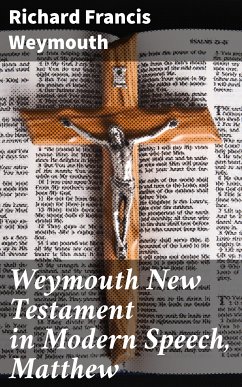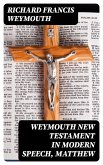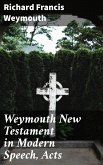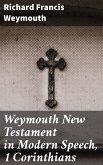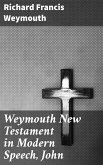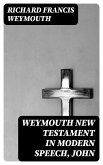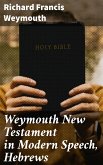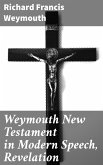In his groundbreaking work, "Weymouth New Testament in Modern Speech, Matthew," Richard Francis Weymouth presents a contemporary English translation of the Gospel of Matthew, aiming to capture the original text's essence while making it accessible to modern readers. Weymouth employs clear and direct language, eschewing archaic verbiage in favor of a fluidity that invites engagement. The literary style is characterized by a commitment to transparency and readability, situated within the rising momentum of 19th-century biblical scholarship that sought to bridge the gap between ancient scriptures and contemporary understanding. Richard Francis Weymouth, a prominent British scholar and linguist, was driven by a fervent belief that the Bible should be approachable for all, regardless of linguistic background. His extensive background in philology and his involvement in the educational reform movement fueled his desire to create a translation that would resonate with everyday believers, fostering a deeper comprehension of spiritual texts. Weymouth's passion for making the scriptures relatable and vibrant stemmed from a lifetime of dedication to biblical studies and the intricacies of language. I highly recommend "Weymouth New Testament in Modern Speech, Matthew" to readers seeking a profound yet accessible interpretation of a pivotal gospel. This translation not only enhances the understanding of Matthew's teachings but also serves as an essential resource for scholars, clergy, and laypersons alike. Weymouth's work embodies a harmonious blend of faith and intellect, making it a valuable addition to any theological library. In this enriched edition, we have carefully created added value for your reading experience: - A succinct Introduction situates the work's timeless appeal and themes. - The Synopsis outlines the central plot, highlighting key developments without spoiling critical twists. - A detailed Historical Context immerses you in the era's events and influences that shaped the writing. - A thorough Analysis dissects symbols, motifs, and character arcs to unearth underlying meanings. - Reflection questions prompt you to engage personally with the work's messages, connecting them to modern life. - Hand-picked Memorable Quotes shine a spotlight on moments of literary brilliance. - Interactive footnotes clarify unusual references, historical allusions, and archaic phrases for an effortless, more informed read.
Dieser Download kann aus rechtlichen Gründen nur mit Rechnungsadresse in A, B, BG, CY, CZ, D, DK, EW, E, FIN, F, GR, H, IRL, I, LT, L, LR, M, NL, PL, P, R, S, SLO, SK ausgeliefert werden.

